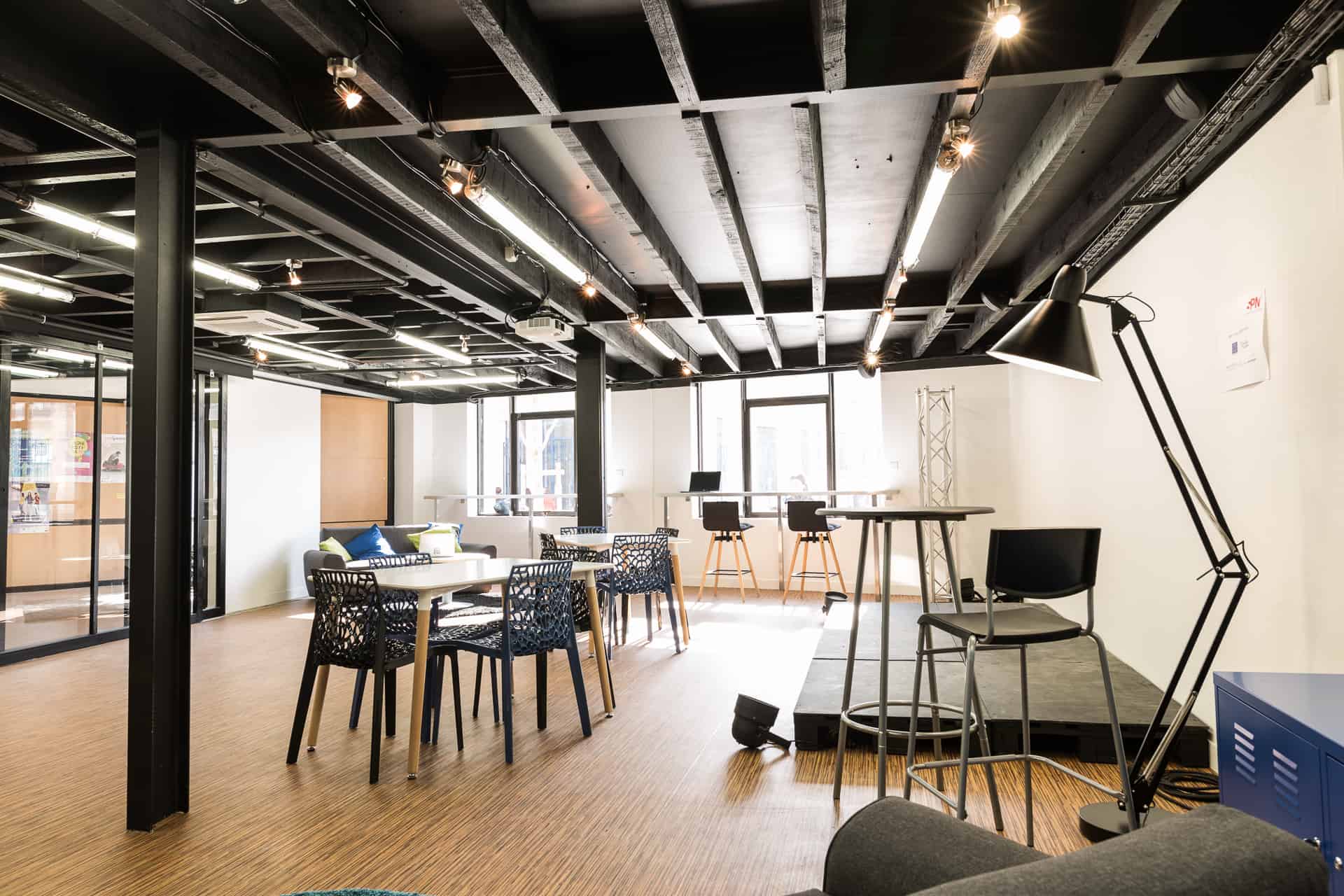Coworking and third places: two trends that are transforming real estate
Coworking spaces, third places... these new spaces are increasingly attracting companies and employees. It is much more than a simple trend, as they reflect a new way of working and have changed our relationship with our professional activity. We have taken a look at a rapidly growing phenomenon.
The hashtag #coworking has undoubtedly gained popularity, with over 190,000 subscribers on LinkedIn. The concept of third-place was created in the ‘80s and became a reality in 1995, in Berlin, thanks to the creation of one of the very first hackerspaces in the world: the C-Base. Its objective was to encourage exchanges between its members. In 2002, the "Schrauben Fabrik" was created in Vienna. It was conceived as a community centre for companies and is now one of the most important coworking networks in Europe.
However, it was in San Francisco (USA), where the first modern third place was born under the guidance of Brad Neuberg, who wanted to offer a space combining "the freedom and independence of freelance work with the structured and collaborative dimension of teamwork". Third places reflect a new territorial dynamic and respond to a new way of doing things and meeting new needs. It is much more than a coworking space, it is a space designed to facilitate meetings and exchanges and can take the form of a fablab, connected campus, shared workshop, and even neighbourhood centre. These structures have in common to offer a place for exchanging and gathering about professional projects and social activities.

A response to the Covid-19 crisis
When the health crisis led to the extension of home office, its limits were pointed out, particularly the loss of social links and isolation. For this reason, third places and coworking quickly emerged as an appropriate solution. At the same time, they are spaces for working, testing, and innovation. They also offer a response to the problems of ecological and energy transition, as they help to reduce the carbon footprint thanks to the reduction of journeys between home and work.
Coworking offers more flexibility to companies, particularly in the management of human and real estate resources. It has also made it possible to improve the well-being of employees and offers entrepreneurs an alternative to traditional office space and 3-6-9-year leases, which require the tenant to wait at least three years before breaking the lease.
Initially located in large cities, third places have now become attractive to medium-sized cities and rural areas, which have seen them as a way of strengthening their attractiveness and their value chain for specific activities.
Many examples throughout France
There were just over 1,800 third places and around 1,700 coworking spaces in France in 2019. They come in all sizes and offer a wide range of services that can meet almost all the needs of entrepreneurs and project leaders, regardless of their business sector.
The economic, social and cultural epicentre of Marseille, the Euroméditerranée Central Business District, known for its unique real estate offer, is home to more than 5,000 responsible companies that generate over 43,000 jobs. Offering a particularly rich and diversified range of coworking spaces, it is part of the metropolis' strategy to provide sites adapted to the needs of modern entrepreneurs: fablabs, maker spaces, third places, business factories, etc., without losing the original meaning of coworking: “to leave it open to new opportunities”. It meets the needs of the development of the self-employed, the transformation of economies, and the emergence of an attractive ecosystem for teleworking.

The Euroméditerranée Central Business District
As its name suggests, the Phare is a genuine place of prestige, appreciated and recognised throughout the Limousin region. Based in Limoges, this space combines work and culture, thanks to an original and well-conceived real estate offer. Besides classic coworking spaces, such as offices and meeting rooms, the Phare offers temporary exhibitions, concerts, conferences... hosted in a 100m² art gallery. Other spaces, such as the kitchen, the library and the ping-pong table, are also at the disposition of coworkers, providing them a comfortable and relaxed working environment.
Poitiers has also a unique offer of third places thanks to Cobalt, a space dedicated to the digital industry and education. It has a wide choice of offices and a price range adapted to all needs, either for "residents" or for digital nomads. Networking events help to reinforce the dynamism of the site and the collaboration between its users.

Space for events, the Grand Salon at Cobalt
Would you like to find out more and identify the best third-place or coworking space to start, develop or adapt your activities? Contact us by phone 01 86 76 05 78, by email: implantation@geolink-expansion.com.

